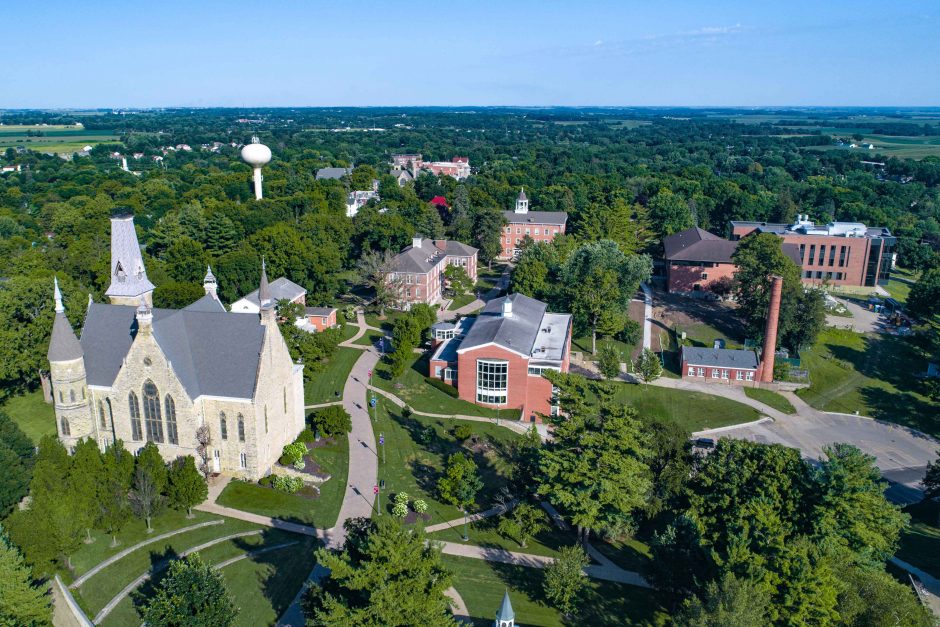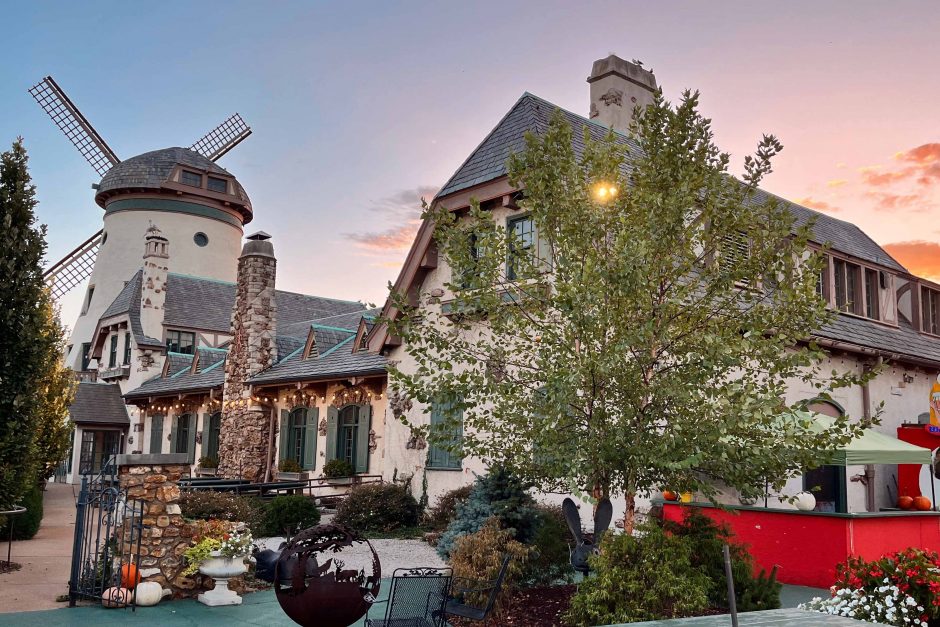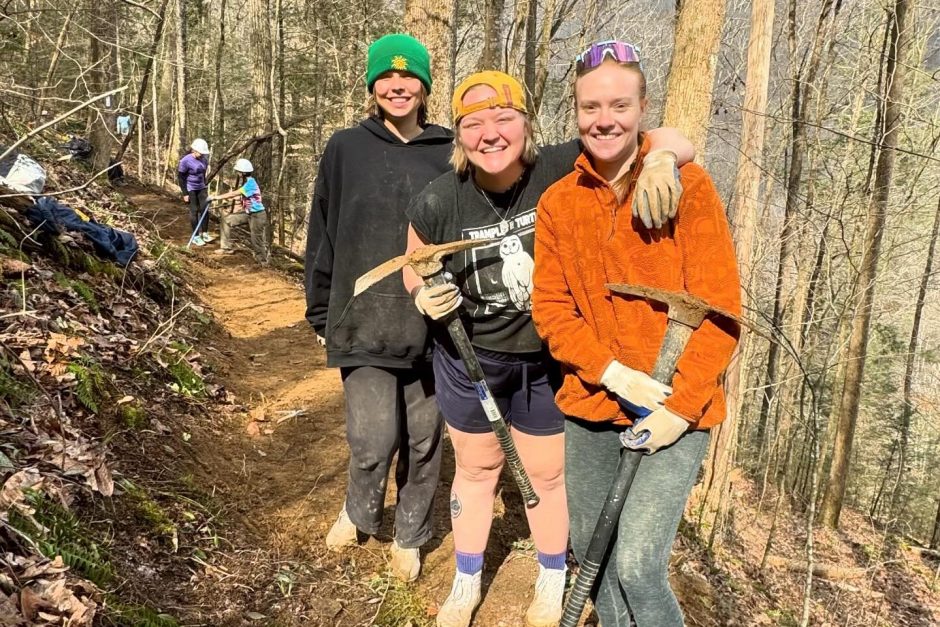Sultan Ahmed Khan ՚21 pursues divinity degree at Harvard

Hometown: Mardan, Khyber Pakhtunkhwa, Pakistan
B.A. in international relations and politics
Questions and answers have been edited for clarity and length.
What are your short and long-term plans after Cornell? Short-term: I will be pursuing my 3-year master of divinity degree at Harvard Divinity School. My research focus will be political Islam. Mid-term: I intend on continuing my education to obtain a doctorate in divinity studies. Long-term: I intend to work at consulting organizations like the McKinsey Institute, and refine my knowledge through an academic-teaching career with the later goal of pursuing a political career influencing public policy in Pakistan.
Why do you think studying international relations and politics at Cornell is beneficial? Cornell is a cosmopolitan community and what better way to dive into learning about international relations and politics than being in such a community. I have had numerous meaningful and insightful discussions with peers from the U.S. and abroad, especially with students who traveled from Africa, Asia, Europe, and the Middle East. It’s like sitting in the heart of a global community and having access to genuine perspectives about imposing issues that pertain to students’ home countries or regions. Additionally, programs like the inter-institutional exchange program between Cornell and other universities from Japan and South Korea really added flavor to my learning as an international relations major. Furthermore, I have had robust and amazing academic mentors, like Professor David Yamanishi, who guided my research ambition into the world of international relations.
Cornell’s block plan allows and empowers students to do so much more than just academics; I have been able to organize an independent study through which I founded a campaign in Pakistan in 2019. Secondly, constantly supportive staff, and mentors, like Director of Intercultural Life and Senior Diversity Officer Hemie Collier and Program Director for Civic Engagement Samantha Hebel, have helped me not only explore but pursue my passion at the professional level.
In 2020, I worked on developing a leadership course for my International Student Orientation (ISO) internship at the Office of Intercultural Life (ICL), that focused on personal growth and leadership training for incoming students, facilitated critical consciousness about societal institutions, and explored the psychological, emotional, and neurological impact of racism and colonization in academic literature. If anything, the block plan coupled with staff that goes above and beyond their call of duty to help students is the most suitable template for a student’s extracurriculars as well as academics.
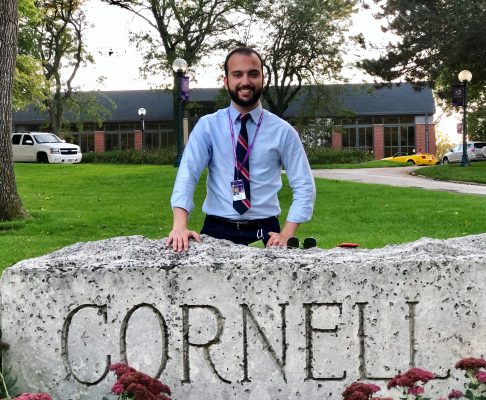 How has Cornell prepared you for your future? Cornell has prepared me in the most pragmatic, resourceful, and educated way to lead a successful future. Firstly, through numerous academic researches over the course of an intensive, and deep-diving block plan, Cornell prepared me to undertake vigorous graduate-level study at Harvard.
How has Cornell prepared you for your future? Cornell has prepared me in the most pragmatic, resourceful, and educated way to lead a successful future. Firstly, through numerous academic researches over the course of an intensive, and deep-diving block plan, Cornell prepared me to undertake vigorous graduate-level study at Harvard.
I am genuinely grateful for the intensive One Course At A Time experience. It has added great endurance to my abilities to pursue ambitious research projects, immersing myself within the content, and more importantly teaching me to effectively manage time. One Course At A Time stands as the most influential preparation for my future in my academic journey so far.
I have found not a mentor but a whole network of mentors, and I mean it literally. They are some of the most incredibly talented, kind-hearted, and extremely intelligent people I have met. This network of mentors—from academics to career counseling to leadership—has contributed in profound ways to who I am today.
Their advice, recommendations, and critiques have made me a well-rounded young leader with not only a well-informed mind but a well-formed one as well. Taking this resource kit with me I feel expressly confident and optimistic about the future.
Can you identify people you considered to be mentors at Cornell? I have found many mentors during my time at Cornell, and while everyone has contributed in some way, I do feel like acknowledging a few who went beyond their job title to guide me.
If I could mention one person that deserves the highest credit for anything I have achieved at Cornell it would be Director of Admission Operations Sharon Grice. She has been an excellent mentor and guide. Her consistent support and encouragement as well as professional guidance allowed me to make one of the most delightful decisions of my life: join Cornell.
Professor of Politics David Yamanishi has been a tremendously positive and empowering mentor over the course of my Cornell journey. I attended his class as a demo class on my first visit and being assigned to him for academic advising excited me even more as a student.
I met Professor of History Jonathan Dreeze in my last year at Cornell, and I wish I had the opportunity to take more classes with him. Along with helping me learn extensively about the Soviet Union, and facilitating an in-depth understanding of Russian history, which I am personally fascinated with, Professor Dreeze has guided me on many non-academic topics, such as graduate school experiences, goal-setting, and finding the right job.
Professor of Religion Chris Hoklotubbe has significantly altered the course of my life and goals. Professor Hoklotubbe not only introduced me to Harvard Divinity School (HDS) but walked me through each aspect of HDS explaining how it fits perfectly with my ambition and goals. I credit my HDS acceptance to Professor Hoklotubbe’s brilliant mentorship, for accommodating a million Zoom sessions into his schedule, for constantly supervising my HDS application, and for his abundant moral encouragement. Professor Hoklotubbe continues to play an empowering role in my life up to this day. Currently, he is helping me secure a fellowship at the Greater Boston Area Interfaith Organization for the summer.
Mr. Hemie Collier has been a one-of-a-kind mentor. I am heart-fully obliged to his candid demeanor, his incredibly respectful attitude, and his valuable insight. As a leadership mentor with the Office of Intercultural Life, I undertook a novel project of putting together a 3-month personal growth and leadership course for incoming international and African American students for my internship. It was an intensive project that empowered me to critically evaluate the extensive intuitionalism, and examine the metaphysical and neurological impact of slavery, colonization, and racism. Without Mr. Collier I wouldn’t have been able to successfully complete this internship, more importantly, I would have lost such an empowering experience.
Director of the Dungy Writing Studio Laura Farmer has been my emotional and psychological support person at Cornell. She has not only mentored me on my writing but also provided me a listening ear, and helped me navigate my emotionally challenging moments. She also helped me extensively with my graduate school applications and finding the right mix of qualities to put on my personal statements. With her support, unlimited revisions, and thorough feedback I made it to top institutions like the London School of Economics in England and Harvard Divinity.
I have had very thoughtful discussions and received genuine advice on, among many things, career development, networking, and profile building with Director of Employer Relations and Career Coach Jason Napoli at the Berry Career Institute. His mentorship has added key insights into choosing the right career, finding the right opportunities, and approaching the right people to navigate the post-graduation job search.
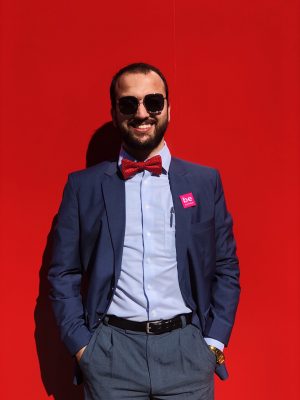 What is the coolest topic you studied for an 18-day block? What made this block stand out to you? I have studied numerous very interesting topics, but I believe my coolest topic would be my notoriously long research in Block 1 of 2019. I joined Cornell as a transfer student, and the opportunity to research topics that mattered to me was just thrilling. So, in my first block at Cornell, with Professor David Yamanishi, I wrote a 34-page long research paper exploring Russian revival in international politics dealing with the Crimean annexation. In the summer of 2020 I wrote a 90-page research paper supervised by Professor David, focused on economic development, regime type, and religion’s revival. This block stood out to me because 1) it really immersed me within a tradition of conducting genuine research. 2) it taught me the importance of finding competent mentors in academic research, in this case, my mentor was Professor David.
What is the coolest topic you studied for an 18-day block? What made this block stand out to you? I have studied numerous very interesting topics, but I believe my coolest topic would be my notoriously long research in Block 1 of 2019. I joined Cornell as a transfer student, and the opportunity to research topics that mattered to me was just thrilling. So, in my first block at Cornell, with Professor David Yamanishi, I wrote a 34-page long research paper exploring Russian revival in international politics dealing with the Crimean annexation. In the summer of 2020 I wrote a 90-page research paper supervised by Professor David, focused on economic development, regime type, and religion’s revival. This block stood out to me because 1) it really immersed me within a tradition of conducting genuine research. 2) it taught me the importance of finding competent mentors in academic research, in this case, my mentor was Professor David.
If you could share with your high school self some words of wisdom that you’ve since learned since being at Cornell, what would it be? Never underestimate the power of your dreams and the inertia of your ambition. Never underestimate the positive influence of a supportive mentor network. Never feel discouraged to ask for help; there are kind-hearted people waiting for an opportunity to help you.
What’s something you learned about yourself during your time at Cornell? Cornell has really facilitated much introspection for me as a young leader. I have realized that I can exercise empathy and have meaningful discussions about critical and sensitive topics like race and religion without offending others. More importantly, to facilitate a respectful discussion and presentation involving bipartisan actors, conservative and liberal friends, aimed at being genuinely open, kind, and expressive.
What is your proudest accomplishment as a Cornellian? I have accomplished many things at Cornell, but what I am most proud of is not an award, or research but the Cornellian experience. My proudest achievement is building mutually respectful, thoughtful, and valuable relationships. I joined Cornell with this end in mind and today I feel proud of myself for having developed a very strong bond and personal connection with my peers, professors, and staff members. Their conversations, accumulative recommendations and suggestions, and thorough critique has made me who I am today.
Was there anything you learned at Cornell that changed your perspective significantly? Cornell College gave me an opportunity to really dive into exploring race relations in America. I returned in August 2020 intent on finding a more robust experience that will empower me to explore race, identity, and culture in America. The ISO-Internship supervised by Mr. Hemie went above and beyond what I had hoped to achieve.
It changed my perspective significantly in two ways: 1) it laid out the complex societal and institutional structures that victimized African American people in the U.S. and 2) It empowered me to learn about the deep neurological, and psychological impact of racism, discrimination, and colonization. Coming out of this project I am more aware of the deeper, more invisible, roots of the story of race, identity, and culture.
What’s one thing you did during your time at Cornell that you never thought you’d do? Joining Beyond the Bomb: Pakistan is a nuclear-armed state, and as a young student leader I never thought I would be able to participate in an organization that would essentially develop my thought on denuclearization. Pakistan and India are the closest of any rivals that can end the world with nuclear bombs. My time at Beyond the Bomb at Cornell enlightened me on how to undertake productive and constructive advocacy against nuclear weapons. I was even invited to speak about the Pakistani perspective at a seminar arranged by the University of Iowa, in Iowa City. This for me was a totally unexpected experience that has contributed unprecedentedly to my learning and growth.
What is your favorite Cornell memory? I have multiple favorite memories from Cornell; my most favorite Cornellian memory is the tradition of late-night breakfasts at the café. The late-night breakfast was a wonderful time for communion, relationship building, and just taking time off from burdensome coursework. It really allowed the student body to get together creatively, laugh and share jokes, and celebrate the little moments that we had together. After the COVID-19 pandemic, the past year has been tremendously challenging, emotionally and psychologically. I truly miss being able to get together with friends celebrating our academic success with much less worry and great vigor, at late-night breakfasts.
I succinctly remember one of our breakfasts where my domestic and international friends got together at the same table. Especially Azu, my friend from Japan pursuing an exchange year at Cornell at the time. There was so much energy, happiness, and celebration, and yes, a few grumpy comments about what our professors did wrong that block. I really miss seeing everyone mingle, talk without hesitation, and even pick on each other.
What’s something about Cornell that makes you smile? Sense of community, belonging, and valuing others.
Favorite spot on campus and why? Middle study room in Pauley-Rorem. I stayed my first year in Pauley-Rorem and the study room was where all of my friends met for a straight year, 2019 until March 2020 when the pandemic hit. It was where we studied, laughed, joked, played games, even argued with each other. I have since moved out but that room will always be very precious to me.
Favorite food (or drink) served at the Hilltop or Zamora’s and why? Chicken fingers and breakfast pizza on Sunday mornings. I have developed an addiction to both of these; they taste so wonderful. I love chicken and pizza in general so being able to have these two foods at Cornell made my day.
What you’ll miss the most? People at Cornell; it’s not the buildings but the people, from professors to staff members, to coaches, to friends that I met at Cornell. Everyone has added in so many ways to who I am, to what I represent, and to what I have been able to achieve.
Tags: Berry Career Institute, civic engagement, intercultural life, international relations, politics, senior-profile, Writing Studio

